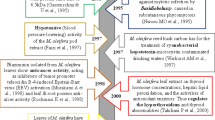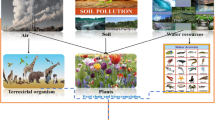Abstract
Plant growth regulators (PGRs) play a vital role in optimizing plant development and harvest quality. However, excessive use can lead to the accumulation of residues on plants, posing a risk to the consumer health. The current study focuses on 1-methylcyclopropene (1-MCP), an emerging PGR used for the last 20 years to reduce post-harvest and increase the shelf life up to several months. The aim of our research is to investigate the effect of the 1-MCP residue exposure on mammalian tissues. To do so, we evaluated the effect of the consumption of 1-MCP-contaminated diet on the liver function, antioxidant system, and hematopoietic parameters of albino Wistar rats for a period of 90 days. Rats were fed with whether a control diet (group I) or a contaminated diet with two respective doses of 1-MCP (D1 for group I and D2 for group II). At the end of the experiment, we conducted a CBC, we measured the body and liver weight, the biochemical liver biomarkers (AST and ALT serum activities), the antioxidant system (GSH content, GST, GPx, CAT, and SOD activities) as well as the lipid peroxidation end-product (MDA levels), and we also calculated the OSI and conducted H&E stained sections to observe the histopathological changes of the liver. The results revealed that the contaminated diet with the lowest dose of 1-MCP increased significantly the WBC count and MCV and altered the PLT count and P-LCR suggesting a leucocytosis and macrocytic anemia. 1-MCP also induced oxidative stress in the liver and depleted the general enzymatic activity of the anti-oxidative system including GST, GPx, CAT, and SOD and the OSI of the 1-MCP treated rats was significantly elevated. 1-MCP also elevated MDA levels but with no observable pathological changes in the hepatocytes or modified AST and ALT serum levels. Although exposure to 1-MCP through the diet may contain antioxidants that can potentially reduce the toxic effect, the risk of significant health implications discovered in this research cannot be ignored. Further investigation into the effects of 1-MCP when directly ingested or inhaled, targeting multiple mammalian tissues and understanding its mode of action on a molecular level, would be valuable in designing safety guidelines and healthcare measures, especially for farmworkers who are in direct contact with 1-MCP.






Similar content being viewed by others
Data availability
The corresponding author can provide the data that supports the study's conclusions upon request.
References
Abdel-Rahman MF, El-Azhari D B, Amin HM (2023) The potential protective role of vitamins C against adverse effects of some plant growth regulators in albino rats. J Pharm Negat Results 337–346. https://doi.org/10.47750/pnr.2023.14.S01.37
Abou-Zeid SM, Allam T, El-Bahrawy A, Mohamed A (2018) Ameliorating effects of green tea on ethephon-induced immunotoxicity and oxidative stress in mice. Int J Pharm Sci Sci Res 4(1):1–9. https://doi.org/10.25141/2471-6782-2018-1.0001
Aebi H (1984) [13] Catalase in vitro. In: Methods in enzymology, vol 105. Academic Press, pp 121–126. https://doi.org/10.1016/S0076-6879(84)05016-3
Andrew GS, Simon UT, John AU, Godwin OO, Alexander NI, Ikagu YM (2018) Studies on changes in some haematological and plasma biochemical parameters in wistar rats fed on diets containing calcium carbide ripened mango fruits. Int J Food Sci Nutr Eng 8(2):27–36. https://doi.org/10.5923/j.food.20180802.02
Bhadoria P, Nagar M, Bharihoke V, Bhadoria AS (2018) Ethephon, an organophosphorous, a fruit and vegetable ripener: has potential hepatotoxic effects? J Family Med Prim Care 7(1):179. https://doi.org/10.4103/jfmpc.jfmpc_422_16
Bhandari G, Zomer P, Atreya K, Mol HG, Yang X, Geissen V (2019) Pesticide residues in Nepalese vegetables and potential health risks. Environ Res 172:511–521. https://doi.org/10.1016/j.envres.2019.03.002
Bradford MM (1976) A rapid and sensitive method for the quantitation of microgram quantities of protein utilizing the principle of protein-dye binding. Anal Biochem 72(1–2):248–254. https://doi.org/10.1016/0003-2697(76)90527-3
Cannon RE, Graves S, Spalding JW, Trempus CS, Tennant RW (2000) Oral administration of dimethylvinyl chloride increases frequency of forestomach papillomas in Tg.AC mice. Mol Carcinog 29(4):229–235. https://doi.org/10.1002/1098-2744(200012)29
CIPAC (2009) 1-Methylcyclopropene impurities GC method (4667/m). Spring House, Pa. 19477. CBE, P. B
Celik I, Tuluce Y (2007) Determination of toxicity of subacute treatment of some plant growth regulators on rats. Environmental Toxicology: an International Journal 22(6):613–619. https://doi.org/10.1002/tox.20284
Celik I, Tuluce Y, Isik I (2006) Influence of subacute treatment of some plant growth regulators on serum marker enzymes and erythrocyte and tissue antioxidant defense and lipid peroxidation in rats. J Biochem Mol Toxicol 20(4):174–182. https://doi.org/10.1002/jbt.20134
COC (2003) Committee on carcinogenicity of chemicals in food, consumer products and the environment. Statement on carcinogenic impurities in the pesticide 1-methylcyclopropene (1 MCP)
Cohen G, Dembiec D, Marcus J (1970) Measurement of catalase activity in tissue extracts. Anal Biochem 34(1):30–38. https://doi.org/10.1016/0003-2697(70)90083-7
de Melo MP, De Lima TM, Pithon-Curi TC, Curi R (2004) The mechanism of indole acetic acid cytotoxicity. Toxicol Lett 148(1–2):103–111. https://doi.org/10.1016/j.toxlet.2003.12.067
Donkor A, Osei-Fosu P, Dubey B, Kingsford-Adaboh R, Ziwu C, Asante I (2016) Pesticide residues in fruits and vegetables in Ghana: a review. Environ Sci Pollut Res 23:18966–18987. https://doi.org/10.1007/s11356-016-7317-6
EFSA (European Food Safety Authority), Arena M, Auteri D, Barmaz S, et al. (2018) Conclusion on the peer review of the pesticide risk assessment of the active substance 1-methylcyclopropene. EFSA Journal 2018 16(7):5308, 19pp. https://doi.org/10.2903/j.efsa.2018.5308
Ellman GL (1959) Tissue sulfhydryl groups. Arch Biochem Biophys 82(1):70–77
El-Sayyad HI, Abo Egla MH, Mortada MM, Ramadan MM, Elbeeh ME (2012) Evaluation of acute toxicity and teratogenic effects of some plant growth regulators on albino rat embryo. Journal of Plant Protection and Pathology 3(9):905–919. https://doi.org/10.21608/jppp.2012.84343
FAO (2019) The state of food and agriculture 2019. Moving forward on food loss and waste reduction, Rome
FAO (2023) FAOSTAT Database license: CC BY-NC-SA 3.0 IGO. Extracted from: https://www.fao.org/faostat/fr/#data/TCL. Accessed 6 Mar 2023
Fischer AH, Jacobson KA, Rose J, Zeller R (2008) Cutting sections of paraffin-embedded tissues. CSH protocols pdb-prot4987. https://doi.org/10.1101/pdb.prot4987
Habig WH, Pabst MJ, Jakoby WB (1974) Glutathione S-transferases: the first enzymatic step in mercapturic acid formation. J Biol Chem 249(22):7130–7139. https://doi.org/10.1016/S0021-9258(19)42083-8
Hafeman DG, Sunde RA, Hoekstra WG (1974) Effect of dietary selenium on erythrocyte and liver glutathione peroxidase in the rat. J Nutr 104(5):580–587. https://doi.org/10.1093/jn/104.5.580
Hjorth K, Johansen K, Holen B, Andersson A, Christensen HB, Siivinen K, Toome M (2011) Pesticide residues in fruits and vegetables from South America–a Nordic project. Food Control 22(11):1701–1706. https://doi.org/10.1016/j.foodcont.2010.05.017
Hodjat M, Baeeri M, Rezvanfar MA, Rahimifard M, Gholami M, Abdollahi M (2017) On the mechanism of genotoxicity of ethephon on embryonic fibroblast cells. Toxicol Mech Methods 27(3):173–180. https://doi.org/10.1080/15376516.2016.1273425
Isik I, Celik I (2015) Investigation of neurotoxic and immunotoxic effects of some plant growth regulators at subacute and subchronic applications on rats. Toxicol Ind Health 31(12):1095–1105. https://doi.org/10.1177/0748233713487247
Katagiri T, Takeuchi T, Mine T, Noguchi T, Nishizawa T, Yamamoto S, Okudaira M, Matsushima T (2000) Chronic inhalation toxicity and carcinogenicity studies of 3-chloro-2-methylpropene in BDF1 mice. Ind Health 38(3):309–318. https://doi.org/10.2486/indhealth.38.309
Kocaman AY, Güven B (2016) In vitro genotoxicity assessment of the synthetic plant growth regulator, 1-naphthaleneacetamide. Cytotechnology 68:947–956. https://doi.org/10.1007/s10616-015-9847-z
Lillie RD, Pizzolato P, Donaldson PT (1976) Nuclear stains with soluble metachrome metal mordant dye lakes: the effect of chemical endgroup blocking reactions and the artificial introduction of acid groups into tissues. Histochemistry 49(1):23–35. https://doi.org/10.1007/BF00490123
Mokhtari T, Osman HEH, El-Kenawy AEM, Dashti N (2020) Ameliorative effect of virgin olive oil against nephrotoxicity following sub-chronic administration of ethephon in male rats. J Tradit Complement Med 10(5):487–495. https://doi.org/10.1016/j.jtcme.2019.08.005
National Toxicology Program (1986a) NTP toxicology and carcinogenesis studies of dimethylvinyl chloride (1-chloro-2-methylpropene) (CAS no. 513–37-1) in F344/N rats and B6C3F1 mice (gavage studies). Natl Toxicol Program Tech Rep Ser 316:1–238 PMID: 12748737
National Toxicology Program (1986b) NTP toxicology and carcinogenesis studies of 3-chloro-2-methylpropene (technical grade containing 5% dimethylvinyl chloride) (CAS no. 563–47-3) in F344/N rats and B6C3F1 mice (gavage studies). Natl Toxicol Program Tech Rep Ser 300:1–196 PMID: 12748706
Oberley LW, Spitz DR (1984) [61] Assay of superoxide dismutase activity in tumor tissue. In: Methods in enzymology, vol 105. Academic Press, pp 457–464. https://doi.org/10.1016/S0076-6879(84)05064-3
Ohkawa H, Ohishi N, Yagi K (1979) Assay for lipid peroxides in animal tissues by thiobarbituric acid reaction. Anal Biochem 95(2):351–358. https://doi.org/10.1016/0003-2697(79)90738-3
Ozok N, Celik I (2012) Effects of subacute and subchronic treatment of synthetic plant growth regulators on liver damage serum biomarkers tissue antioxidant defense systems and lipid peroxidation in rats. J Drug Metab Toxicol 3(124):2. https://doi.org/10.4172/2157-7609.1000124
Paul V, Pandey R (2017) 1-Methylcyclopropene (1-MCP) treatments. In: Novel postharvest treatments of fresh produce. CRC Press, pp 149–216
Renwick A, Leblanc JC, Setzer RW (2010) Application of the margin of exposure (MoE) approach to substances in food that are genotoxic and carcinogenic–example: 1-methylcyclopropene and its impurities (1-chloro-2-methylpropene and 3-chloro-2-methylpropene). Food Chem Toxicol 48:S81–S88. https://doi.org/10.1016/j.fct.2009.09.024
Rezg R, Mornagui B, El-Fazaa S, Gharbi N (2008) Biochemical evaluation of hepatic damage in subchronic exposure to malathion in rats: effect on superoxide dismutase and catalase activities using native PAGE. CR Biol 331(9):655–662. https://doi.org/10.1016/j.crvi.2008.06.004
Rouphael Y, Kyriacou MC, Petropoulos SA, De Pascale S, Colla G (2018) Improving vegetable quality in controlled environments. Sci Hortic 234:275–289. https://doi.org/10.1016/j.scienta.2018.02.033
Sánchez-Rodríguez MA, Mendoza-Núñez VM (2019) Oxidative stress indexes for diagnosis of health or disease in humans. Oxidative medicine and cellular longevity 2019. p 32. https://doi.org/10.1155/2019/4128152
Sedlak J, Lindsay RH (1968) Estimation of total, protein-bound, and nonprotein sulfhydryl groups in tissue with Ellman’s reagent. Anal Biochem 25:192–205
Sisler EC, Blankenship SM (1996) U.S. Patent No. 5518988. Washington, DC: U.S. Patent and Trademark Office
Sørensen MT, Danielsen V (2006) Effects of the plant growth regulator, chlormequat, on mammalian fertility. Int J Androl 29(1):129–133. https://doi.org/10.1111/j.1365-2605.2005.00629.x
Tayeb W, Nakbi A, Trabelsi M, Miled A, Hammami M (2012) Biochemical and histological evaluation of kidney damage after sub-acute exposure to 2, 4-dichlorophenoxyacetic herbicide in rats: involvement of oxidative stress. Toxicol Mech Methods 22(9):696–704. https://doi.org/10.3109/15376516.2012.717650
Tousson E, El-Atrsh A, Mansour M, Assem A (2020) Costus root aqueous extract modulates rat liver toxicity, DNA damage, injury, proliferation alterations induced by plant growth regulator ethephon. Braz J Pharm Sci 56. https://doi.org/10.1590/s2175-97902019000318500
Troudi A, Samet AM, Zeghal N (2010) Hepatotoxicity induced by gibberellic acid in adult rats and their progeny. Exp Toxicol Pathol 62(6):637–642. https://doi.org/10.1016/j.etp.2009.0f8.010
Tudor M, Cuciureanu M, Cuciureanu R, Slencu BG (2017) Experimental evaluation of the action of ethephon and sodium selenite on some hematological parameters in rats. The Medical-Surgical Journal 121(4):806–814
US EPA Office of Pesticide Programs (2008) Biopesticides registration action document, 1-methylcyclopropene (PC Code 224459), vol 1. p 23
Watkins CB (2006) The use of 1-methylcyclopropene (1-MCP) on fruits and vegetables. Biotechnol Adv 24(4):389–409. https://doi.org/10.1016/j.biotechadv.2006.01.005
Yeşilkaya E, Bideci A, Özer Ç, Elmas Ç, Çamurdan O, Giray SG, Cinaz P (2009) Plant growth regulator (4-chlorophenoxy acetic acid) increases apoptosis in gonads of rats without changing hormonal levels. Horm Res Paediatr 72(4):225–235. https://doi.org/10.1159/000236084
Zhan XP, Liu B, Zhu WF, Chen JB, Ma L, Zhao L, Chen X (2022) Simultaneous detection of multiple plant growth regulator residues in cabbage and grape using an optimal QuEChERS sample preparation and UHPLC-MS/MS method. J AOAC Int 105(1):129–141. https://doi.org/10.1093/jaoacint/qsab115
Author information
Authors and Affiliations
Corresponding author
Ethics declarations
Funding
This research is supported by the General Direction of Scientific Research and Development of Technology and Ministry of Higher Education and Scientific Research, DGRSDT-MESRS Algeria.
Conflict of interest
The authors declare that they have no conflict of interest.
Ethical approval
All the protocols used in this study were conducted according to the International Guidelines for Laboratory Animal Care and Use (Council of European Communities) (JO86/609/CEE) and approved by the Ethical Committee of Directorate General for Scientific Research and Technological Development at Algerian Ministry of Higher Education and Scientific Research, permit no PNR/SF 08/2012.
Informed consent
For this type of study informed consent is not required.
Consent for publication
For this type of study consent for publication is not required.
Additional information
Publisher's Note
Springer Nature remains neutral with regard to jurisdictional claims in published maps and institutional affiliations.
Rights and permissions
Springer Nature or its licensor (e.g. a society or other partner) holds exclusive rights to this article under a publishing agreement with the author(s) or other rightsholder(s); author self-archiving of the accepted manuscript version of this article is solely governed by the terms of such publishing agreement and applicable law.
About this article
Cite this article
Boukerche, S., Ouali, A. & Ouali, K. Effect of contaminated diet with a plant growth regulator “1-methylcyclopropene” on the hematological parameters and liver function of albino Wistar rats. Comp Clin Pathol 33, 21–32 (2024). https://doi.org/10.1007/s00580-023-03518-6
Received:
Accepted:
Published:
Issue Date:
DOI: https://doi.org/10.1007/s00580-023-03518-6




